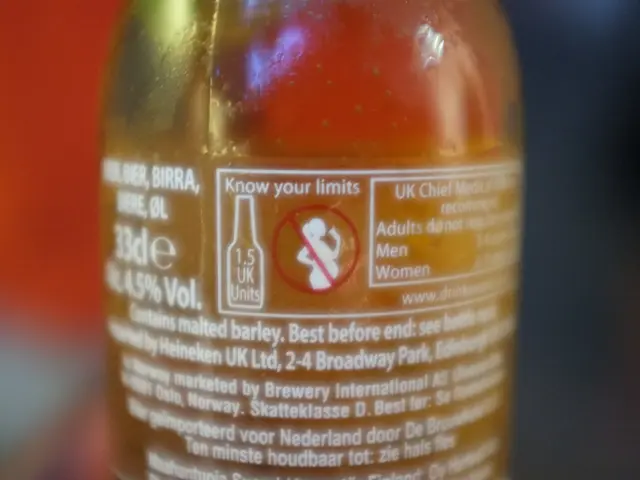Rising Concerns: The Negative Sway of Social Media on American Teens
Examining the Impact and Implications
Increase in Teenagers' Concerns Regarding Social Media, as 48% Confirm Experiencing Adverse Impacts
A troubling pattern is surfacing amongst American teenagers, as they increasingly view social media as a detrimental influence on their peers. As per a Pew Research Center report, a whopping 48% of U.S. teens now believe social media predominantly has a negative impact on individuals their age - a staggering increase from 32% in the previous years [1][2]. This escalating negativity brings attention to the growing concerns about the psychological and social repercussions of social media usage.
Mental Health and Emotional Well-being
- Anxiety and Depression: Research indicates a strong relationship between excessive social media use and heightened rates of anxiety and depression among teens [3][4]. The addictive nature of social media channels fuels a dopamine dependency and an enhanced sensitivity to criticism, negatively affecting self-esteem [3][4].
- Cyberbullying and Isolation: Teens often encounter cyberbullying, online predators, and misinformation, which can lead to feelings of isolation, low self-worth, and decreased happiness [4].
- Dopamine Rush and Immediate Satisfaction: The constant anticipation of social media notifications and interactions can result in mood swings and challenges with patience and goal-setting [3].
Actions from Global Authorities
- Worldwide Standards: In response to these issues, authorities and legislators are demanding tougher safeguards for the protection of young users. For instance, Australia has enacted laws restricting social media access for minors, and Utah has passed a law mandating age verification for downloads [1].
- U.S. Regulations: Former U.S. Surgeon General Vivek Murthy urged Congress to label social media apps with warnings identical to those on alcohol and tobacco, pointing out the risks to young demographics [1].
- Global Scrutiny: The international community is moving towards evaluating social media companies' responsibility for their impact on teenagers. This includes stricter monitoring of usage and the implementation of measures to decrease excessive exposure to potentially harmful content.
Final Thoughts
The steadily increasing negative sentiment toward social media among American teens necessitates both individual self-awareness and proactive measures from policy makers. As psychological distress escalates among teens, parents, educators, and lawmakers must unite to foster a healthier and responsible social media experience for the younger generation.
- The continuously rising number of American teens who view social media negatively, now standing at 48%, reflects a significant concern about its impact on their mental health and emotional well-being.
- Overuse of smartphones and social media among teens has been linked to increased rates of anxiety and depression, due to a dopamine dependency and enhanced sensitivity to criticism.
- Cyberbullying, online predators, and misinformation are common issues faced by teens on social media, leading to feelings of isolation, low self-worth, and decreased happiness.
- Global authorities are taking action to protect young users, with measures such as stricter safeguards, age verification for downloads, and evaluating social media companies' responsibility for their impact on teenagers.
- To combat the negative effects of social media on teenagers, it is essential for parents, educators, and lawmakers to work together to foster a healthier and more responsible lifestyle, focusing on mental health, health-and-wellness, and avoiding the negative influence of entertainment on young minds.








